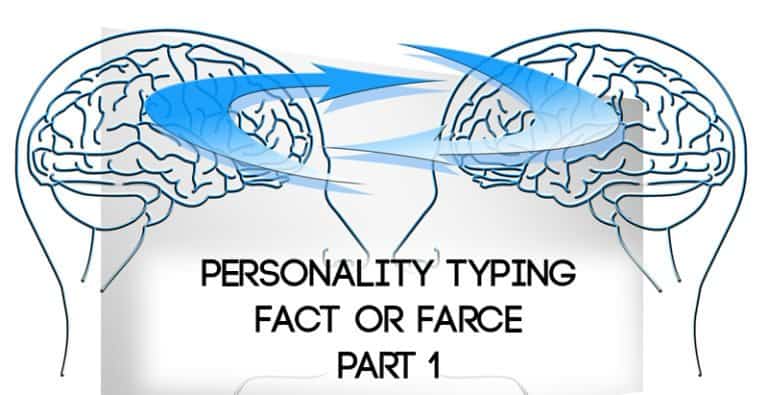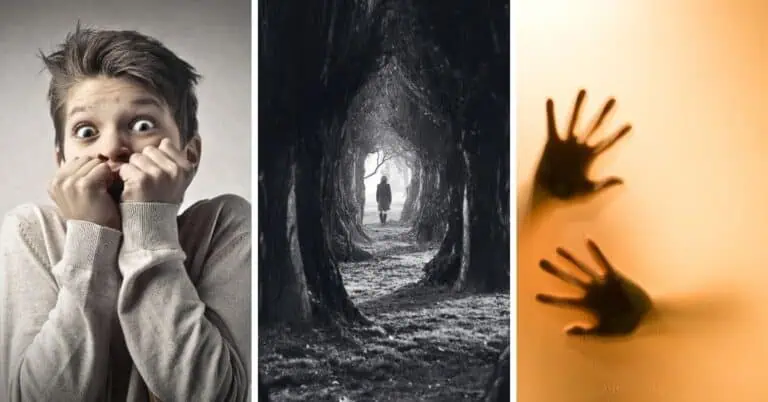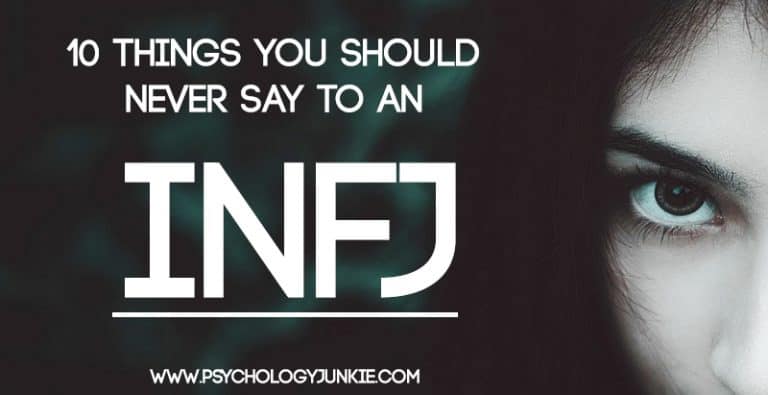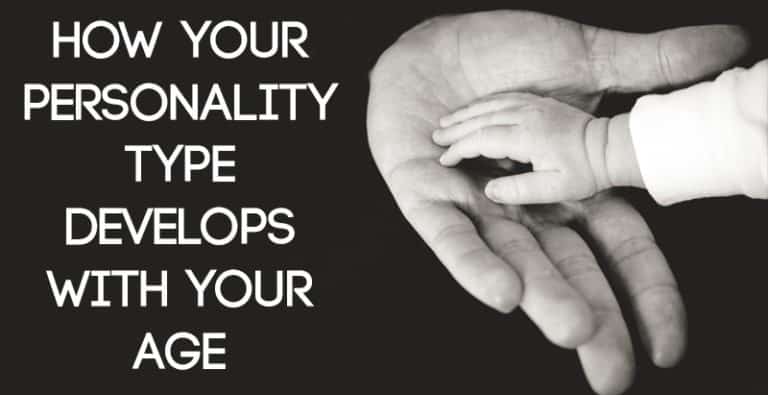Here’s How Self-Accepting You Are, Based on Your Personality Type
How Can We Know Which Types Are More Self-Accepting?
There are records of case studies done by J.W. Fleenor, 1997, in the book “The Relationship Between the MBTI® and Measures of Personality and Performance in Management Groups”. The results of these studies are recorded in the MBTI® Manual – Third Edition. These studies will form the basis for my article here.

What Are the Signs of High Self-Acceptance?
According to the CPI™ tool, high self-acceptance means:
Having a good opinion of self, seeing self as talented, personally attractive, talkative.
What Are the Signs of Low Self-Acceptance?
According to the CPI™ tool, low self-acceptance means:
Self-doubting, readily assumes blame, often thinks others are better, gives in easily.
Not sure what your personality type is? Take the most accurate online personality indicator here.
Here’s How Self-Accepting You Are, Based On Your Personality Type
The ISTJ and Self-Acceptance
ISTJs ranked as having neither high or low levels of self-acceptance. They are known for being down-to-earth, level-headed, and reasonable individuals. For this reason, they’re unlikely to have lofty or low opinions of themselves. On the flip side, ISTJs are known for being self-assured in their opinions and logic. They spend a lot of time analyzing data and facts to make sure that their arguments are valid and logical. This can make them appear very confident and assertive when needed.
Related: What ISTJs Do When They’re Really Stressed Out
The ISFJ and Self-Acceptance
ISFJs ranked as having low self-acceptance according to the CPI™ tool. This may be largely because ISFJs are known for being cautious and careful, which may come across as self-doubting at times. ISFJs are also very practical and down-to-earth, and thus may not have very lofty, idealized images of themselves. As extraverted feeling types, ISFJs may appear to give into others if they are trying to reach a win-win compromise or a solution that will best meet everyone’s needs. In some cases, ISFJs can put their own needs last as they try to take care of others first. As they develop and progress through life, however, they often become more thoughtful of their own needs and desires.
Related: Understanding ISFJ Feeling
The ESTJ and Self-Acceptance
ESTJs ranked as having high levels of self-acceptance according to the CPI™ tool. This actually makes sense on a scientific level. According to neuroscience expert, Dario Nardi, ESTJs rely heavily on a neocortex region labeled fp1. This region filters out unwanted information, including negative feedback from others. Nardi says that ESTJs “brush off negatives or distractions and point out errors.”
As extraverts, ESTJs also tend to be more talkative than some types, particularly introverts. They tend to “think out loud” and process their judgments externally. Since being talkative was considered a sign of self-acceptance, it makes sense that they would have scored higher on this scale. ESTJs are also usually very sure of themselves and are able to make quick decisions. They are rarely pushovers or people who give in to others easily, unless they are faced with objective facts and logic. Confidence and strong leadership capabilities are all very common for these types.
The ESFJ and Self-Acceptance
ESFJs ranked as having neither high or low levels of self-acceptance. As practical, realistic types they are probably unlikely to have low or lofty views of themselves. When it comes to their values and beliefs, they are usually very self-assured and certain. They are also on the talkative side, and since talkativeness was considered a trait of self-acceptance, this may be why they didn’t score low. According to the MBTI® Manual, ESFJs score high on “seeing self as average person” so this may be why they have relatively average levels of self-acceptance.
The ISTP and Self-Acceptance
ISTPs ranked as having a lower range of self-acceptance according to the CPI™ tool. They aren’t especially talkative, which may be one of the reasons they scored lower, since “talkativeness” was considered a trait of self-acceptance. They also tend to have extremely realistic views of themselves, and maintain a democratic view of people in general, not assuming anyone is better than anyone else. ISTPs ranked lowest of all the 16 personality types in using social coping resources to deal with stress, according to the MBTI® Manual. They are also one of the four types in college reporting the lowest levels of assertiveness. All this may play a part in why they rank lower on self-acceptance.
It’s important, as always, to remember that there are variations from person to person and this analysis certainly doesn’t mean that all ISTPs have low self-acceptance.
Related: 10 Things You Should Never Say to an ISTP
The ISFP and Self-Acceptance
ISFPs scored on the lower range of self-acceptance, according to the CPI™ tool. Because ISFPs are often modest individuals, it makes sense that they wouldn’t rank especially high for “seeing self as talented” or “seeing self as personally attractive”. ISFPs are usually very accepting of all kinds of people, and rarely adopt the view that anyone is better or more worthwhile than anyone else. They can have moments of grappling with self-doubt as they try to determine what’s important to them and what their values are. They can also appear to “give in easily” (one of the signs of low self-acceptance) when they try to avoid conflict. That said, if one of their core values is violated they can be very fiery and passionate in defense of their beliefs or cause.
The ESTP and Self-Acceptance
ESTPs ranked high for self-acceptance according to the CPI™ tool. This doesn’t really come as a surprise, since ESTPs are known for being confident, self-assured, and assertive. They tend to believe in themselves and spend very little time “wallowing” or looking down on themselves when they make a mistake. They are usually quick to pick themselves up, shake off the dust, and keep going. All the signs of low self-acceptance, (self-doubting, thinking others are better, giving in easily) are very uncommon traits of the ESTP type. They are usually very sure of themselves and their place in the world, and while they may strive to meet others needs in many cases, they usually have healthy self-esteems.
The ESFP and Self-Acceptance
ESFPs ranked neither high or low for self-acceptance according to the CPI™ tool. These level-headed realists don’t usually have idealized views of themselves, but they are unlikely to have especially low views either. They are more focused on action and engaging with the world around them then doubting themselves. They are usually sociable, confident, and aware of where they stand with others and themselves. They aren’t usually prone to long bouts of self-doubt, and they also don’t tend to put themselves on a pedestal. All these things together might explain why they rank very middle-of-the-road when it comes to self-acceptance.
The INTJ and Self-Acceptance
Surprisingly, INTJs ranked as having lower than average levels of self-acceptance on the CPI™ tool. This doesn’t seem to fit with my personal experience in dealing with INTJs, so let’s look at the criteria:
Traits that were associated with high levels of self-acceptance included “having a good opinion of self, seeing self as talented, seeing self as personally attractive, talkative”. As reserved introverts, it’s no wonder that INTJs wouldn’t have appeared especially talkative. In fact, no introverted types scored high for levels of self-acceptance, so there’s probably a correlation there.
INTJs can be very confident of their viewpoints and their logic, but as dominant intuitives, they may also see things from so many perspectives and angles that they have moments of self-doubt and uncertainty. Some INTJs are also highly misunderstood in our society because they are such a rare personality type, making up only 2.1% of the US population. Many INTJs may struggle with being accepted by others, and as a result may have trouble accepting themselves. I’ve definitely seen this in my experience as an MBTI® practitioner, and it’s one of the reasons why a knowledge of personality type can be very comforting for this type.
Related: The Childhood Struggles of INTJs.
The INFJ and Self-Acceptance
INFJs ranked as having low levels of self-acceptance, according to the CPI™ tool. High signs of self-acceptance included “having a good opinion of self, seeing self as talented, personally attractive, talkative”. INFJs tend to be on the quiet side, which might have impacted their ranking. I think that people can be quiet and self-accepting, however, so I’m not sure how much I agree with that aspect of the tool.
INFJs do often struggle with bouts of self-doubt simply because they see everything from so many different perspectives and vantage points. They can struggle with knowing why they get hunches or make intuitive “leaps” about things. It’s normal for them to have periods of uncertainty before they state their opinions. Intuition isn’t like objective logic, which one can more readily accept as fact. So it seems common for introverted intuitive types to grapple with skepticism of their own hunches and insights. Since “self-doubt” was considered a sign of low self-acceptance, this may be why INFJs ranked lower in this area.
As the rarest personality type, INFJs can also struggle with feeling like the quintessential “square pegs in a round hole”. Many INFJs I’ve spoken with talk of feeling weird, strange, or “not good enough”. Through a knowledge of personality type, many INFJs are able to progress to feeling more accepting, understanding, and sure of themselves.
Related: Understanding INFJ “Grip” Stress
The ENTJ and Self-Acceptance
ENTJs are one of the types that ranked highest for self-acceptance on the CPI™ tool. This comes as no surprise as these types are known for being confident, self-assured, and decisive. They are less likely than many types to grapple with self-doubt, and they certainly aren’t the types to give in easily. They enjoy a challenge, a lively debate, or anything that will test their resolve and intellectual prowess. Achievement tends to be important to ENTJs which might also correlate with “seeing self as talented”. After all, ENTJs are the highest-earning Myers-Briggs® personality type in the US.
There also might be a scientific reason why ENTJs have higher levels of self-acceptance. According to neuroscience expert Dario Nardi, ENTJs (along with ESTJs) rely heavily on a neocortex region labeled fp1. This region filters out unwanted information, including negative feedback from others. Nardi says that ENTJs “brush off negatives or distractions and point out errors.”
ENFJs and Self-Acceptance
ENFJs ranked as having high levels of self-acceptance according to the CPI™ tool. These inspirational types often hold tightly to their values and causes, and are usually very self-assured in their vision of what would be best for people. They are also one of the more talkative personality types, and since this is seen as a trait of self-acceptance, this could be another reason why they ranked highly on this scale. ENFJs also ranked highly for being “self-assured, verbally fluent, and versatile” which might help them to feel more confident and capable than many other types.
Related: 10 Things You Should Never Say to an ENFJ
The INTP And Self-Acceptance
INTPs ranked as having a lower range of self-acceptance according to the CPI™ tool. Since talkativeness was considered a trait of self-acceptance, it’s no surprise that they ranked lower here. INTPs aren’t especially talkative, and they are more aware of what’s not true than what is in many cases, which might be why they have moments of self-doubt. INTPs, along with ISTPs, also ranked as having the lowest mean level of coping resources of the 16 types according to the MBTI® Manual. As natural skeptics, they may be slow to settle on a positive self-image, instead always seeing more ways they could improve. As always, there are exceptions from person to person, and this statistic doesn’t imply that all INTPs have low self-acceptance.
Related: The Board Game You Will Dominate, Based on Your Personality Type
The INFP And Self-Acceptance
INFPs ranked as having lower levels of self-acceptance, according to the CPI™ tool. They are known for being modest and reserved, so this could be a large part of why they got the lower ranking. The CPI™ tool looks for things like talkativeness, seeing self as personally attractive or talented, when ranking people. As introverts, INFPs tend to be on the quiet side, and as introverted feelers, they aren’t especially concerned with status or appearances so they may not really care about whether they are “personally attractive”. They also tend to see things from so many different angles and perspectives that they grapple with self-doubt and uncertainty. They also tend to avoid or dissolve conflict unless it’s related to a core value, which may give them the appearance of “giving in easily”. That said, most INFPs are not the types to give in easily when it comes to a core value or personal belief. For these things they can be very passionate and self-assured.
Related: 10 Ways to Spark Your Creativity as an INFP
The ENTP and Self-Acceptance
ENTPs ranked as having high levels of self-acceptance according to the CPI™ tool. This comes as no surprise, since ENTPs are known for being self-confident and self-assured. They usually have the gusto and self-belief to try things in challenging, innovative ways. They are lively debaters who are able to verbally spar with others without grappling with incessant self-doubt. Giving in, doubting themselves, and hesitating are traits that don’t generally apply to this type on a social level. On their own, they may toss ideas back and forth and see things from so many different angles that they have bouts of uncertainty. However, in most cases, they like to explore the ideas they have with confidence and self-assurance.
The ENFP and Self-Acceptance
ENFPs ranked as having high levels of self-acceptance according to the CPI™ tool. These inspiring, motivational individuals are often able to see situations and themselves in a positive way. While they certainly have moments of self-doubt, they are usually quick to see new possibilities and positive angles to any situation and move forward in life with self-assurance and enthusiasm. As extraverts, they tend to be more talkative than introverted types, which may account for why all the types who scored high on self-acceptance were extraverts. They are usually extremely independent, free-spirited individuals and their ability to see and accept their own talents helps them greatly in life.
As always, there are variations from person to person. There may be some ENFPs who do not fit this mold – statistics are never absolutes!
Related: Discover Your Superpower, Based on Your Personality Type
What Are Your Thoughts?
Do you agree with these assessments? Do you have any thoughts to add? Let us know in the comments!









This is why introverts need to speak up. I take issue with the criteria. Talking has nothing to do with self confidence and it automatically puts all introverts on the bottom. Think about it. I can talk about how I lack confidence or say I have confidence in my self while lying. I can also be talking about my cats. Consider this also, an introvert also draws energy from with in and needs time alone. Not one of 8 types who fit that statement has confidence in themselves? I believe as an INTP can solve any logical problem and worry everyone else is stupid (good old TE critic). Does that not sound like self confidence?
I completely agree with what you’re saying. I think it’s a little odd that the CPI tool uses talkativeness as a sign of self-acceptance, and am thinking of doing some re-writing on this post after thinking about it more. Thank you for your feedback!!
Yeah it is weird. I actually think talkativeness shouldn’t be linked to self acceptance. In fact quietness can be a sign of maturity and simply accepting the differences in people and being happy with being yourself. I think overly talkative people in some cases actually have low self esteem and the need to prove themselves over and over again. I tend to open up only to select people. But i don’t feel insecure nor better than anyone else at the core. I am simply myself. – an intp
Thanks, I appreciate your response and your mission. I’ve gotten a lot of good information from this site. Keep it up, please.
Thank you so much! 🙂
Yeah I agree with the above comment, it is weird they link talkativeness with self acceptance. I do think quietness can be a sign of maturity and simply accepting the differences in people (yourself included). Being overly talkative can actually be a sign of seeking external validation and the need to prove yourself constantly. I do actually open up to only a select few, not because of insecurity, but trust and intimacy (even emotional intimacy). I am simply myself and am not trying to seek the validation of everyone else. – an INTP
When I read the description of an ENTP like most fortune cookie style descriptions I don’t think they represent anything remotely true about me except what someone one the outside might guess if they knew nothing at all about me.
Think about Socrates for a minute, did he seem very self-assured and self-accepting?
Let me do a little real life style breakdown of being an ENTP…
Ne or Extroverted Intuition Dominant – I notice everything like endless waves of observations ranging from the tiniest little details to all the possible connections and meanings behind every one of those details to the point where it’s almost impossible to focus because I literally can’t turn it off. Sometimes sure, it gives me a moment of excitement when I discover something really meaningful but most of the time I’m just overwhelmed by everything.
Ti or Introverted Thinking Auxiliary – Basically I’m addicted to learning and figuring out what all these observations mean. Why? Because I can’t learn enough… ever… I am literally overwhelmingly aware of all the information I don’t have and all the observations I do not understand the meaning behind them. I am so painfully aware of all the information I don’t have that I feel at times as if life in general is that moment where you’re taking the biggest test you’ll ever have to take and you did absolutely nothing to study for it so you decide to pull an all-nighter and hope you make it.
Fe – Extroverted Feeling Tertiary – Well I process my thoughts through auditory senses as an error correcting mechanism because I need an extra filter to decide which observations and connections are coincidence vs. which have real meaning. This requires me to communicate and use people as almost a sounding board on a pretty frequent basis. I also question people a lot looking at their perspective truths. This often results in me frequently offending people. Now true, I’m not afraid to talk to people because any social fears I might have are drastically overwhelmed by my need to know, so sure I have that going for me but I’m a rational that verbalizes observations, especially those I don’t understand or don’t make sense. Since most people are irrational about their fears and demons yeah… that goes well… combine that with my compulsive need to fix everything and seek some greater balance and lets just say the equation of whether a person loves me or loathes me is very much a factor of time. Eventually I’ll try to fix something people want me to leave the heck alone and will piss them off in a way they don’t even know they can get pissed off. Luckily for me Ne seems to be married to Fe in many regards providing me with overwhelming amounts of completely cold and emotionless observations that often leave me very aware of other people’s feelings. This is great when you want to talk to someone and make them feel “seen” allowing them to feel truly and deeply emotionally connected to you until you piss them off which really ends up in feeling so much pain and frustration that you inevitably become emotionally numb and have trouble feeling anything at all much of the time. Though this is probably helpful because I’m very expressive and when I get excited at all the ways people interpret that never works out well for me. Lets just say for all my ability to make people feel seen and known it’s something I personally have never once felt even remotely and when I thought I did it was short lived.
Si or Introverted Sensing Inferior – Well this is where the fun begins folks. I’ll describe this as I follow a rational path of logic that makes sense. All “systems” that we know of are designed for a purpose, many of those purposes are not very transparent to people. I see the reasons behind them, the flaws, and why they are absolute garbage and get extremely frustrated at the fact I often have to follow stupid meaningless rules that were made simply because there are people out there that can’t manage basic things for themselves without someone telling them how to live life. Combine that with a painful awareness of my own mistakes because those observations are focused just as inwards as they are outwards and you have a recipe for not even wanting to exist in this world half the time. I am exceedingly aware of my shortcomings especially when it comes to “Si work” and my inconsistency is probably the only thing consistent about me. I live seeing connections to things that I believe could change the world but I feel overwhelmed as a whole that I fail at basic life and do not have the patience to cut through the bureaucratic red tape to devote my life to get just one of these connections recognized by people that need it spelled out for them in the most difficult way humanly possible to accept it. Basically the system in which we live life sucks for people like me and if I noticed something world changing and brilliant tomorrow it’d take me two PHDs, a handful of jobs in the field, maybe some published literary work and a ton of luck to get that one observation recognized in a way that it might have am impact or get accepted, or I could just discover that I wasted my life on that one observation and failed to implement it which is more likely what would happen with Inferior Si…
I feel like due to my Inferior Si I struggle with basic “life” and need a partner against the world while at the same time the Ne-Ti nightmare pretty much tells me I’ll drive everyone to hate me eventually so I pray that Fe can be my saving grace as I respond the best I can to others emotions hoping I can refrain from driving everyone away, which I often accomplish by playing introvert and just not talking that much to those I care about…
So yeah… self-accepting? Are you kidding me? I don’t lie to myself, I don’t feed myself BS about how great I am all day while arguing my way around trolling people…
I’m overwhelming to people as well as I live life overwhelmed. I point out everything as a compulsion that often leaves people with the impression that I’m really a jerk because I’m insecure over all the information I don’t know so I live my life studying constantly instead of doing crap like chores. I see the flaws in everything and constantly have to reinvent the wheel because the one society uses sucks and wobbles like trying to drive on the autobahn with a donut on…
Oh… and my English teacher in 10th grade that I thought hated me paid for me to take the SB4 which lets just say produced some BS that haunts me to this day as just another reason why I have no excuse for the fact that I fail at life and should have accomplished more instead of wasting it on unfinished projects and research I’ll never be able to prove so it’s basically worthless…
Combine that with the fact every time I’ve financially been well off I’ve basically given it away and though I don’t exactly struggle with money because making it’s pretty easy I do resent having to waste so much of my life on doing it.
Ugh… I can’t keep doing this… This rant and thoughts is just a small fraction of what popped up in my head reading this trash… This response has already taken more of my life than this article deserved…
“Giving in, doubting themselves, and hesitating are traits that don’t generally apply to this type on a social level.”
Lets reword this to:
“Having felt the pain of failure so often it’s only rivaled by the fear of not even trying so you act without hesitation because you compulsively have to know what really happens and can’t contain it all in your head for fear of insanity… while at the same time living to prove society wrong that you’re not just a trolling jerk so you easily show the kindness most people lack while observing people enough they feel amazingly seen and recognized makes you look socially better than you feel because the moment one of these people sees their own insecurities in you they’d toss you in a fire and run as fast as they could…
Self-Doubt… dude… I doubt everything… ESPECIALLY myself!
I found the description of INFP to be spot on for me. Thank you so much for the article. It feels so good to read something that is accurate and feel understood. 😀
This article must have been written by an ESTJ. ESTJs are anything but what is written here. Most dysfunctional type ever.
“INFJs ranked as having low levels of self-acceptance, according to the CPI™ tool. High signs of self-acceptance included “having a good opinion of self, seeing self as talented, personally attractive, talkative”. INFJs tend to be on the quiet side, which might have impacted their ranking. I think that people can be quiet and self-accepting, however, so I’m not sure how much I agree with that aspect of the tool.”
You are so delusional it is SCARY. Scary.